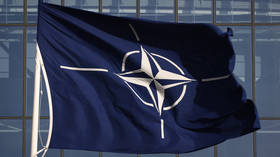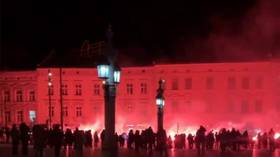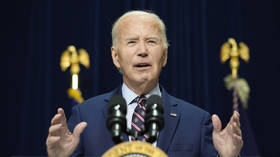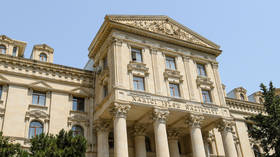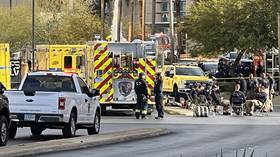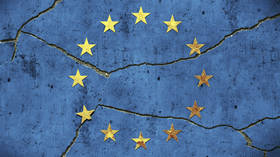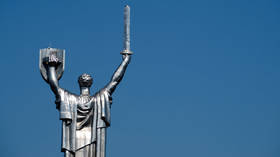Kremlin explains relaxed stance on possible NATO expansion
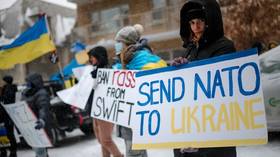
Kremlin spokesman Dmitry Peskov has explained why the NATO aspirations of Ukraine were more concerning for Russia than those of Finland and Sweden, which officially announced on Sunday that they were looking to join the US-led military bloc.
“We have no territorial disputes with either Finland or Sweden. Ukraine could have potentially become a member of NATO, and in this case Russia would have had a territorial dispute with the state that participates in the alliance, which would have carried huge risks for the entire continent,” Peskov told reporters on Monday.
He was referring to the situation around Crimea, which overwhelmingly voted to split with Ukraine and become part of Russia during a referendum in 2014. However, Kiev has been calling the peninsula – which has a Russian-speaking majority – “occupied territory” and has vowed to eventually return control over it.
Making sure Ukraine becomes a neutral state that will never join NATO has been cited by Moscow as one of the main reasons for its ongoing military operation in the country.
But Moscow is still monitoring the latest possible expansion of NATO “in the most thorough manner” to evaluate its consequences for Russia’s national security, the spokesman pointed out.
“We're not convinced that the inclusion of Sweden and Finland [which shares a 1,340-kilometer (832-mile) land border with Russia] is going to somehow strengthen and improve the security architecture on our continent,” Peskov said.
Sweden and Finland stayed out of the US-led bloc during the Cold War, but their governments now claim that the conflict in Ukraine has become a game-changer for them.
US lawmakers may approve the NATO applications by Stockholm and Helsinki “before August,” Senate Minority Leader Mitch McConnell said on Monday. Their colleagues from the other 29 members of the alliance could do it even faster, McConnell suggested. The approval of all NATO members is needed to welcome new nations into the alliance.
Last week, Sweden and Finland’s bid was faced with sudden opposition from Turkey, which slammed the two Nordic nations as “guesthouses for terrorist organizations” for harboring members of Kurdish groups banned by Ankara. However, NATO’s Deputy Secretary General Mircea Geoana expressed confidence on Sunday that the bloc would be able to overcome Turkish objections.
